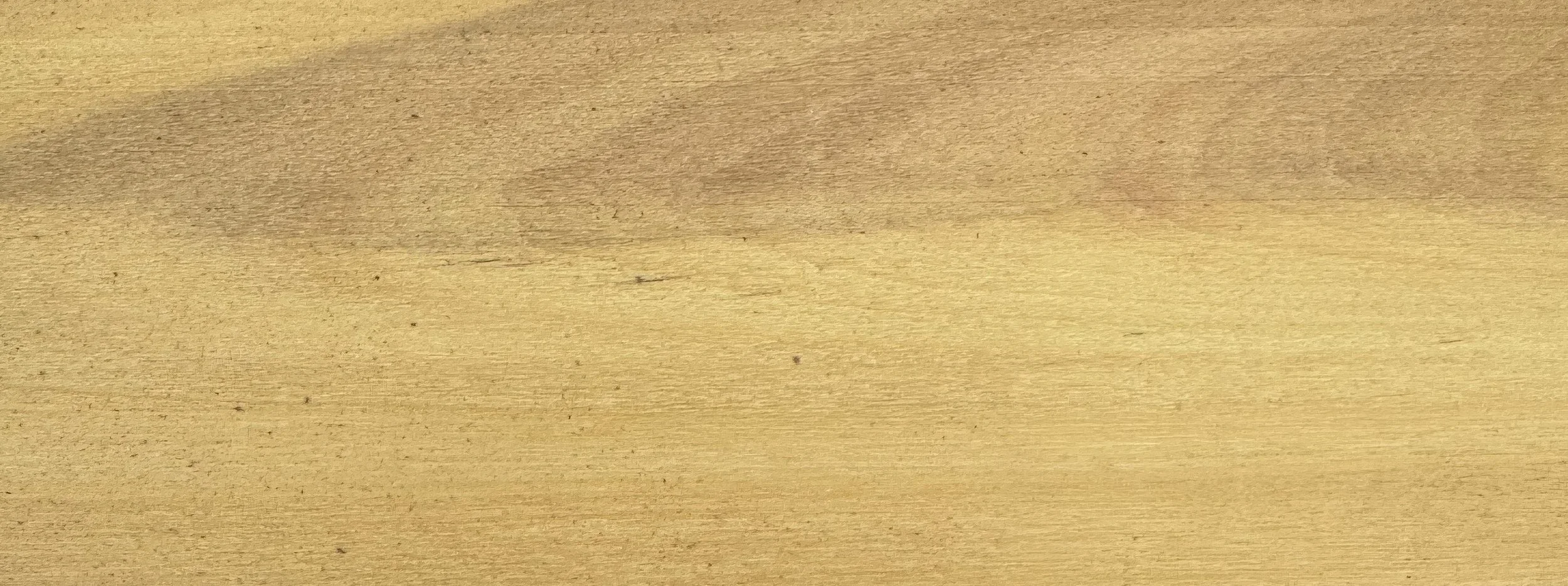
Allen Yellowheart
Once nearly lost, Allen Yellowheart carries its story forward with sun-bright color.
The Story
When I stepped into Mr. Allen’s shop, most of what I found reflected the landscapes we both called home — Texas pecan, ash, elm, maple — lumber he had milled, traded for, or saved from the curb. But among those familiar stacks sat something unexpected: Yellowheart. Bright as sunlight, dense, and uncommon in these parts, it was proof that his eye for wood reached far beyond his own backyard.
By then, Parkinson’s had already taken him out of the shop, and his inventory was days away from being hauled off for mulch or burned. That’s when I bought it all — every board he had saved over the years. In that act, the Yellowheart became reclaimed wood in the truest sense. It wasn’t just rare lumber anymore; it was material saved from loss, rescued along with the pecan from his yard and the elm from his trades.
For me, bringing Allen Yellowheart into the Salt Shaker Woodworks shop isn’t just about its striking color. It’s about honoring the care of another craftsman, reclaiming lumber that was nearly gone, and carrying forward a story that bridges both local roots and global reach.
About the Tree
Source: Laboratório de Produtos Florestais, Brazil.
Yellowheart (Euxylophora paraensis), often called pau amarelo, is a tropical hardwood native to northern South America, especially Brazil. In the forest it grows tall and straight, maturing into a medium-to-large canopy tree. What makes it famous isn’t the bark or leaves but the heartwood within: naturally vivid yellow that sets it apart from almost any other species.
The tree shown here is simply an example of the species — not the exact tree that supplied the boards from Mr. Allen’s shop.
About the Wood
Yellowheart is dense, fine-grained, and unusually consistent in color. Its even golden tone sets it apart from most hardwoods, making it ideal for accents, borders, and projects where clean contrast is key. It machines well with sharp tools, glues and finishes reliably, and takes on a smooth, polished surface without the need for stain.
In my shop, I reach for Yellowheart when a piece needs a bright spark — a stripe through a cutting board, an inlay against dark walnut, or a field of clear, unbroken color in a serving board or turned piece. Its weight and strength give it substance, while its unmistakable color ensures it always stands out.
Why It Matters
Every board of Allen Yellowheart carries more than exotic color — it carries the story of a craftsman who saved it, and of another who reclaimed it when it was nearly lost. Left to the city haul-off, this wood would have been shredded to mulch or gone up in smoke. Instead, it was pulled back into the hands of someone who could carry it forward.
For me, that’s the heart of reclaimed woodworking: saving not just local trees with deep roots in Texas soil, but any wood worth preserving. Allen Yellowheart reminds me that stewardship isn’t about where the tree grew, but about recognizing value, honoring those who kept it safe, and giving every good board the chance to live on in new form.
Made With Allen Yellowheart
Herringbone-pattern cutting board with bold Yellowheart accents — a one-of-a-kind piece crafted in the Salt Shaker shop. Available now.
Veggie/Cheese board with bold Yellowheart accent — a versatile serving piece crafted in the Salt Shaker shop. Available now.
Cutting board with bright Yellowheart accents — crafted for everyday use in the Salt Shaker shop. Available now.
Allen Yellowheart is available now in the Salt Shaker Woodworks shop — each board crafted with the vivid golden accents this rare wood is known for. The gallery above shows specific pieces; the button below will take you to the full Salt Shaker Woodworks shop, where you can browse everything currently available. If you’d like something designed around your own idea, you can also request a custom order and I’ll bring it to life in Yellowheart or any of the other woods I keep on hand.






